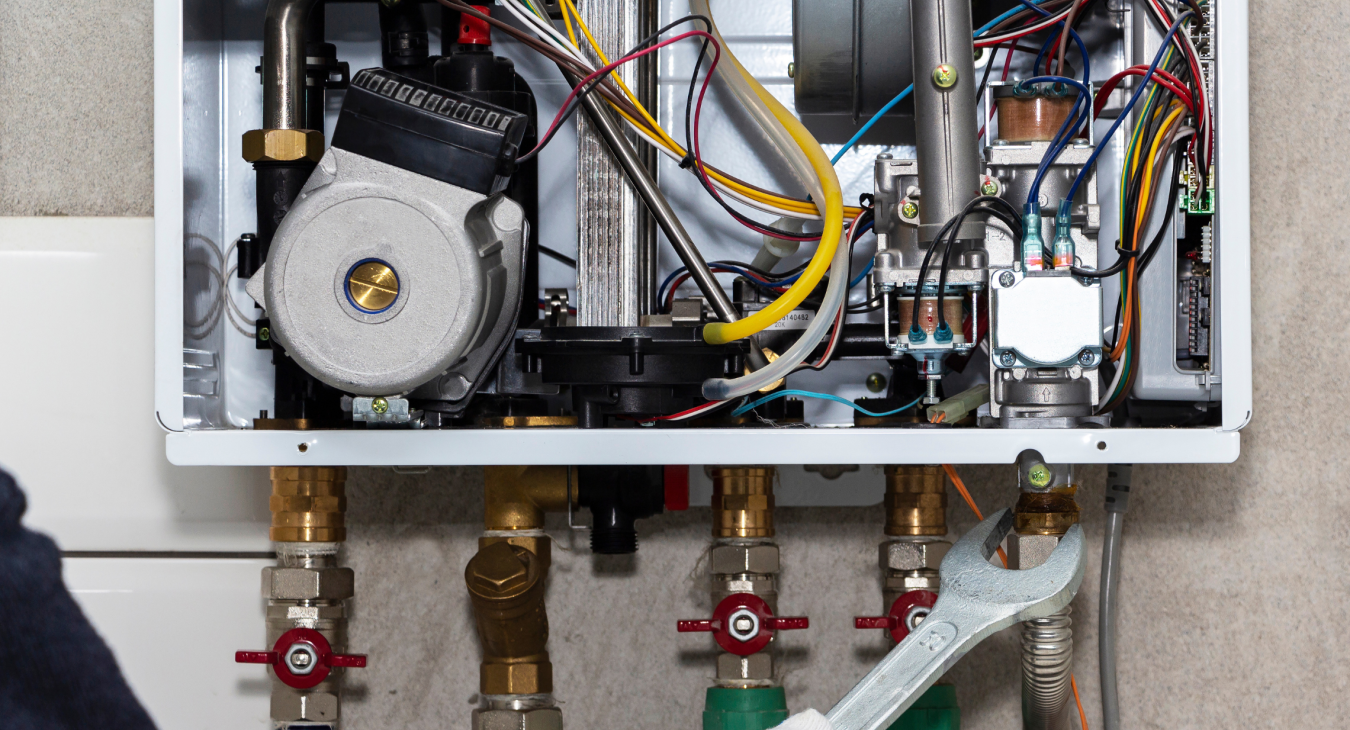
As the days grow shorter and temperatures start to drop, now is the perfect time to prepare your home’s plumbing for the cooler months ahead. Proper maintenance during autumn can prevent costly repairs and ensure your home stays warm and dry all winter long. Here are some essential plumbing tips to get your home ready for the colder season.
1. Schedule a Boiler Service
Your boiler is the heart of your heating system and autumn is the ideal time to ensure it’s functioning properly. An annual boiler service will identify any issues before they become major problems, keeping your system running efficiently. Not only does this reduce the risk of a breakdown during the coldest months, but it can also help lower your energy bills.
During a boiler service, a qualified technician will:
- check for leaks or corrosion
- ensure the thermostat and safety devices are working correctly
- clean internal components to improve efficiency
- confirm the boiler is burning fuel safely
Pro Tip: don’t wait until winter! Book your service in early autumn when engineers are more available and before demand spikes.
2. Insulate Pipes to Prevent Freezing
Frozen pipes are a common issue when temperatures plummet. As water freezes, it expands, which can cause pipes to burst. Insulating your pipes is a simple and effective way to prevent freezing and the damage it can cause.
Focus on areas that are most vulnerable to freezing, such as:
- outdoor pipes
- pipes in unheated areas like garages, basements and lofts
- garden hose connections
Pipe insulation can be easily applied using foam tubing, which is affordable and available at most DIY shops.
3. Check for Leaks
Even small leaks can become big problems in colder weather. As pipes contract in the cooler temperatures, any existing cracks or weak points can worsen. Take some time to inspect your home for signs of leaks, such as:
- dripping taps
- damp spots on walls or ceilings
- puddles near appliances like washing machines or dishwashers
If you find any leaks, it’s best to address them right away. Ignoring them can lead to water damage, higher water bills and even burst pipes when the cold sets in.
4. Test Your Heating System
Before the cold weather hits, turn on your heating system to ensure everything is functioning as it should. It’s better to discover any problems now rather than in the middle of a cold snap. Make sure your radiators are heating evenly and listen for any unusual noises coming from your system.
5. Drain and Disconnect Outdoor Hoses
Leaving hoses connected during autumn can cause water to freeze inside, leading to a build-up of pressure that can burst your outdoor taps and pipes. To avoid this, be sure to:
- drain your hoses
- disconnect them from outdoor taps
- store them away for the winter
If your outdoor taps aren’t frost-proof, consider installing an insulated cover to protect them from freezing temperatures.
6. Clear Gutters and Drains
Autumn leaves are beautiful but they can also cause blockages in your gutters and drains. When rainwater can’t drain away properly, it can lead to overflowing, leaks and even flooding. Regularly clearing out leaves and debris ensures that water flows freely and reduces the risk of damage to your home’s exterior and foundation.
7. Check Your Hot Water Cylinder
As temperatures drop, you’ll be relying more on hot water for showers, laundry and heating. Check that your hot water cylinder is in good working order by:
- testing the pressure relief valve
- draining the tank to remove any sediment build-up
- adjusting the thermostat to a comfortable temperature (between 60ºC and 65ºC – high enough to kill off harmful bacteria such as Legionella)
A properly maintained water heater will not only improve efficiency but also prolong its lifespan.
8. Know Where Your Stopcock Is
In the event of a burst pipe, knowing how to quickly shut off your water supply is essential. Make sure you and your household members know the location of the stopcock (also called the main water valve) and how to turn it off in an emergency.
9. Inspect Your Sump Pump
If your home has a sump pump, now is the time to test it. Heavy autumn rains and melting snow can lead to excess water in basements and cellars. Ensure your sump pump is working properly to prevent flooding and water damage.
By taking these preventative steps, you can avoid plumbing emergencies and keep your home warm, dry and safe throughout the colder months. A little preparation in autumn can save you time, money and stress come winter.
If you’re in the Dorchester area and need help with plumbing maintenance, boiler servicing or any heating issues, don’t hesitate to reach out to Joe Newton Electrical, Plumbing and Heating Services.
From drain cleaning and unclogging to a full house re-plumb, contact us today for a no- obligation consultation and quote to enjoy peace of mind throughout the colder months.

